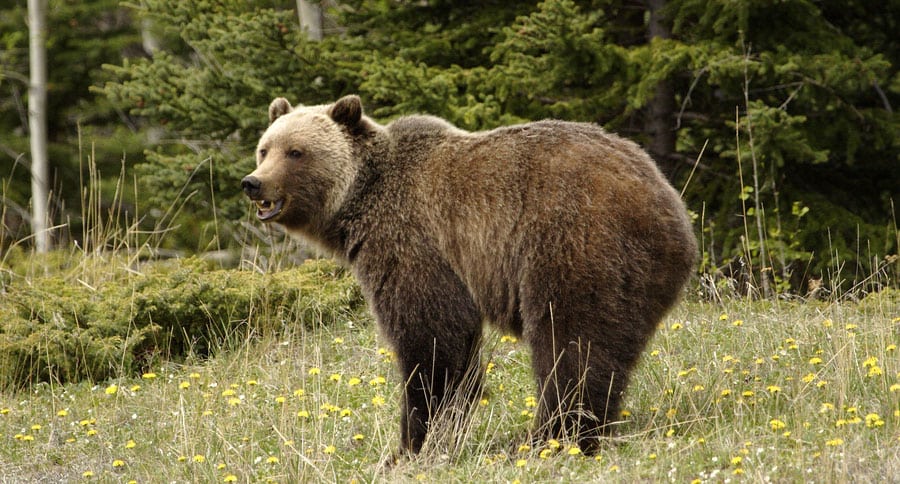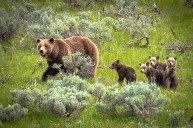This decision will block the hunts for the anticipated Wyoming and Idaho seasons.
According to a report from the Associated Press, U.S. District Court Judge Dana Christensen restored the Endangered Species Act protections for Greater Yellowstone grizzlies Monday. The ruling will halt the controversial Wyoming and Idaho hunts, which would've been the first in the Lower 48 since 1991.
The two states were collectively allowing hunters to take 23 bears, beginning Sept. 1. The federal judge had delayed the hunts twice already, and the most recent temporary restraining order was going to expire later this week.
After having some extra time to weigh the pros and cons, he determined the federal government didn't make the right decision in lifting protections on the animals.
According to Christensen, the Court didn't make the decision based on the ethics of hunting, but rather an inadequate analysis of potential negative effects on the grizzly population.
"I'm feeling relieved," Matthew Bishop, an environmental attorney with WildEarth Guardians, told NPR.
Bishop represented conservation groups and Native American tribes that sued the Interior Department last year. His argument, which resonated with Christensen, contended the U.S Fish and Wildlife Service made a mistake in looking past the potentially broad effects of delisting animals in isolated areas.
Echoing Bishop's argument, Christensen noted grizzlies' modern tendency to isolate themselves in tight groups, which need to merge before any delisting happens.
"The Service cannot abuse its power to 'delist an already-protected species by 'balkanization,'" he said in his ruling, referencing one of the D.C. Circuit's criticisms.
While the number of human conflicts with bears has continued to increase, the pressure to lift protections on grizzlies has continued to build. Additionally, conflicts between bears and livestock has prompted ranchers to speak up about the benefits of a hunting season.
"These are people that encounter grizzly bears as part of their daily lives," said attorney Cody Wisniewski, who represented Wyoming ranchers and farmers, at a previous hearing. "Their goal is just to have local management. To be able to go to their local representatives, their elected officials, the people that live in and beside them in their state in order to resolve any disputes."
USFWS has also been working to remove federal protections for an additional group of roughly 1,000 bears in Montana. However, we can probably expect all parties to revisit those plans following the Christensen ruling.
"The idea of recovering grizzly bears in the Lower 48 should still be on the table," Bishop said. "They shouldn't be able to get away with this piecemeal delisting approach."
NEXT: IRISH SETTER BOOTS STILL GOT IT ALMOST 70 YEARS LATER




